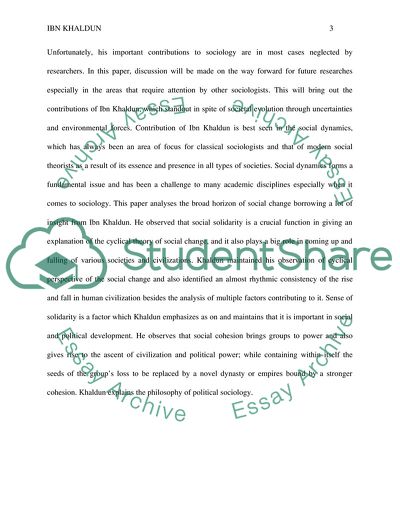Cite this document
(Introduction to Ibn Khaldun Research Proposal Example | Topics and Well Written Essays - 2500 words, n.d.)
Introduction to Ibn Khaldun Research Proposal Example | Topics and Well Written Essays - 2500 words. https://studentshare.org/sociology/1845820-introduction-to-ibn-khaldun
Introduction to Ibn Khaldun Research Proposal Example | Topics and Well Written Essays - 2500 words. https://studentshare.org/sociology/1845820-introduction-to-ibn-khaldun
(Introduction to Ibn Khaldun Research Proposal Example | Topics and Well Written Essays - 2500 Words)
Introduction to Ibn Khaldun Research Proposal Example | Topics and Well Written Essays - 2500 Words. https://studentshare.org/sociology/1845820-introduction-to-ibn-khaldun.
Introduction to Ibn Khaldun Research Proposal Example | Topics and Well Written Essays - 2500 Words. https://studentshare.org/sociology/1845820-introduction-to-ibn-khaldun.
“Introduction to Ibn Khaldun Research Proposal Example | Topics and Well Written Essays - 2500 Words”. https://studentshare.org/sociology/1845820-introduction-to-ibn-khaldun.


